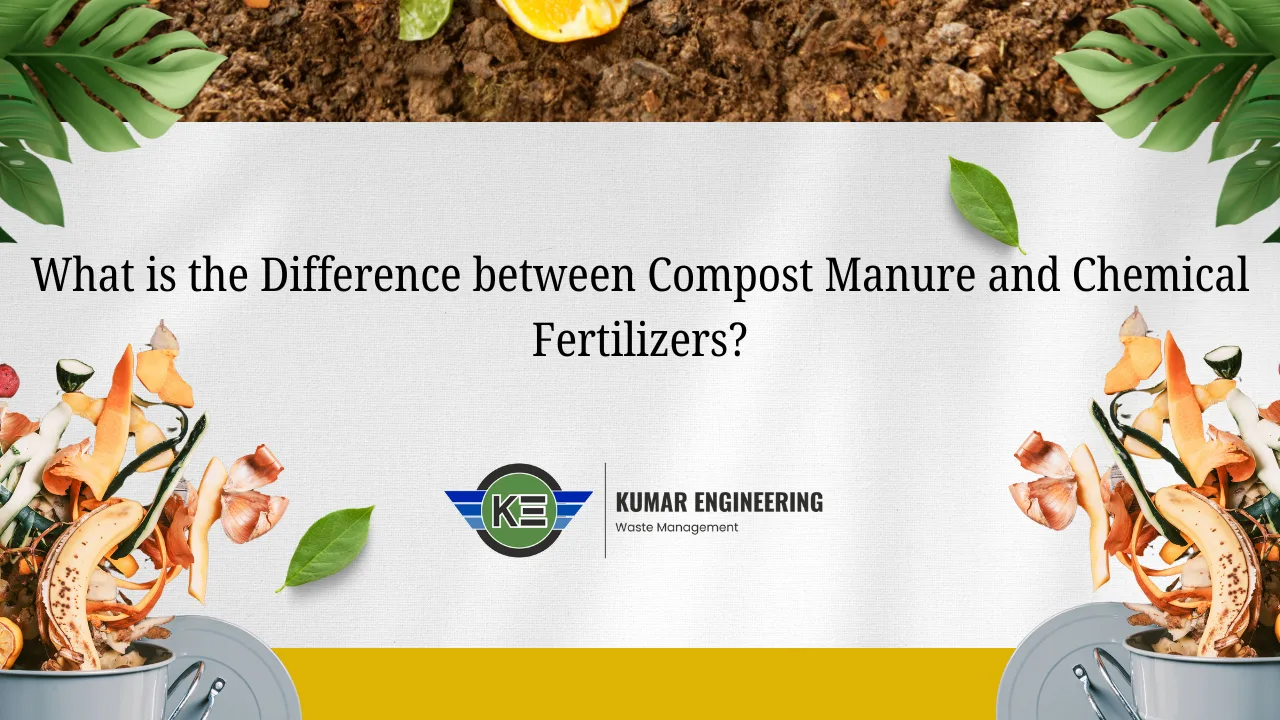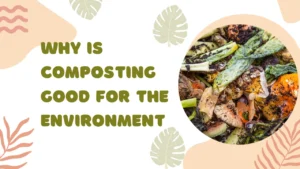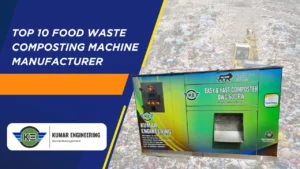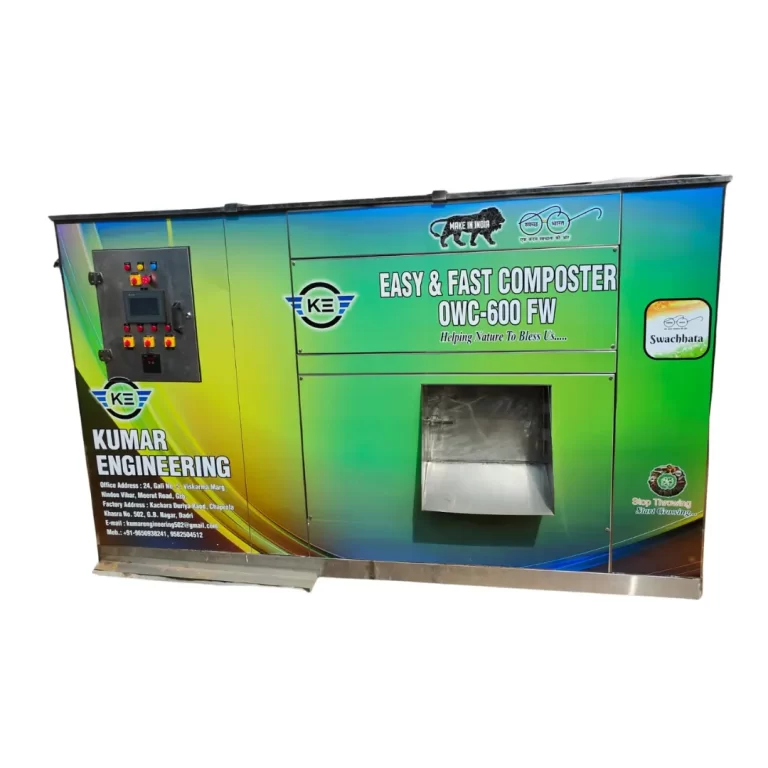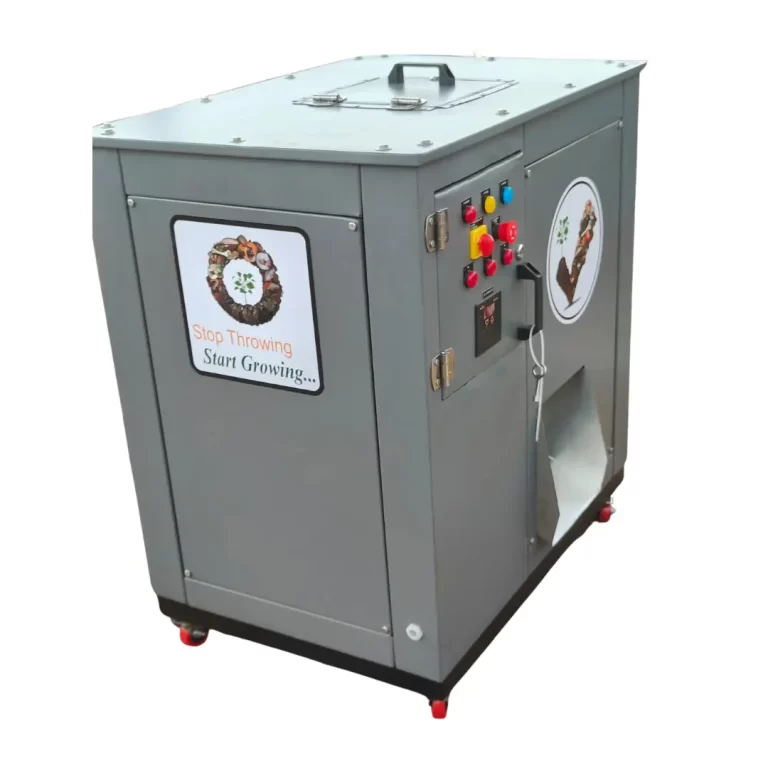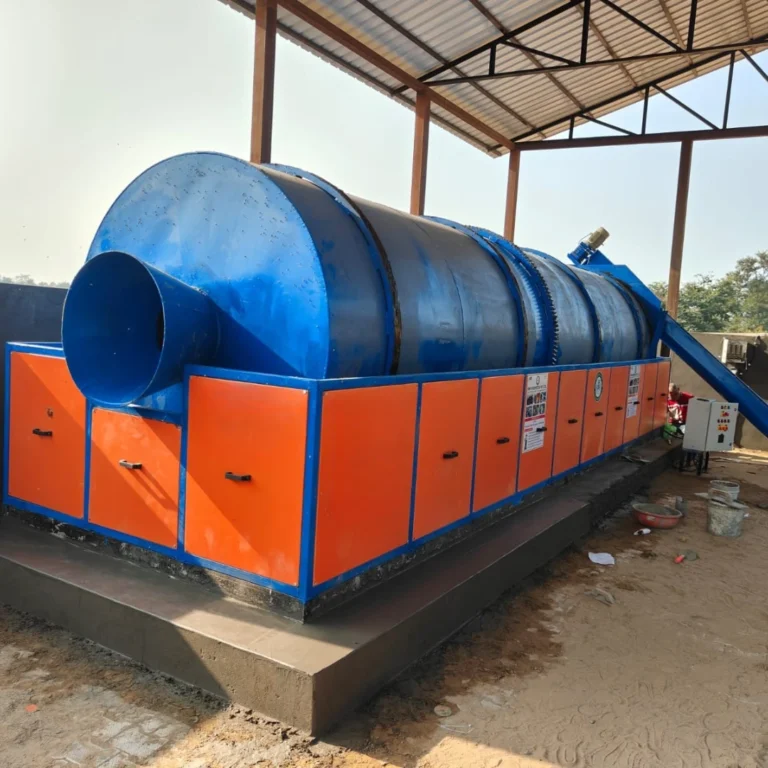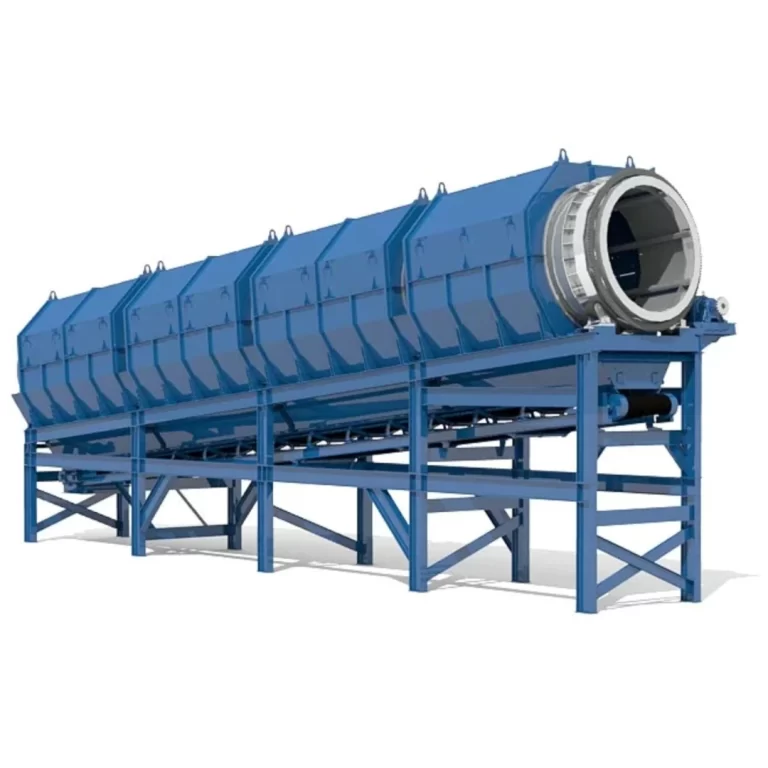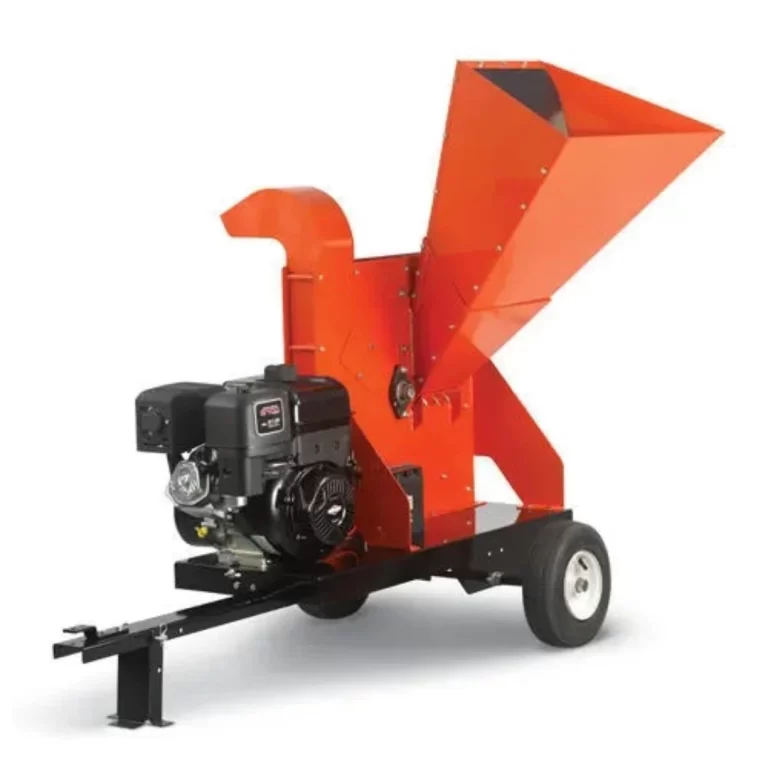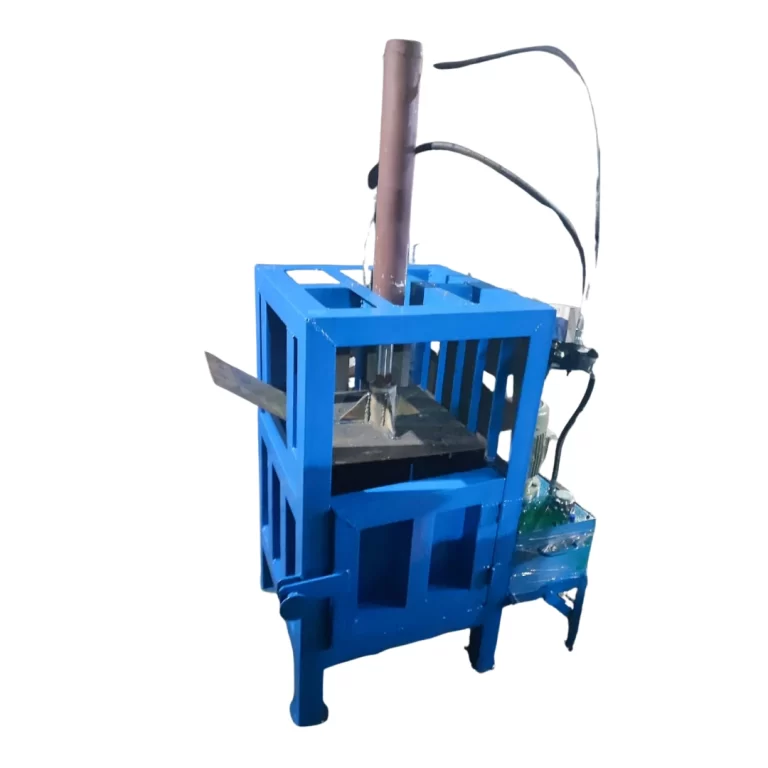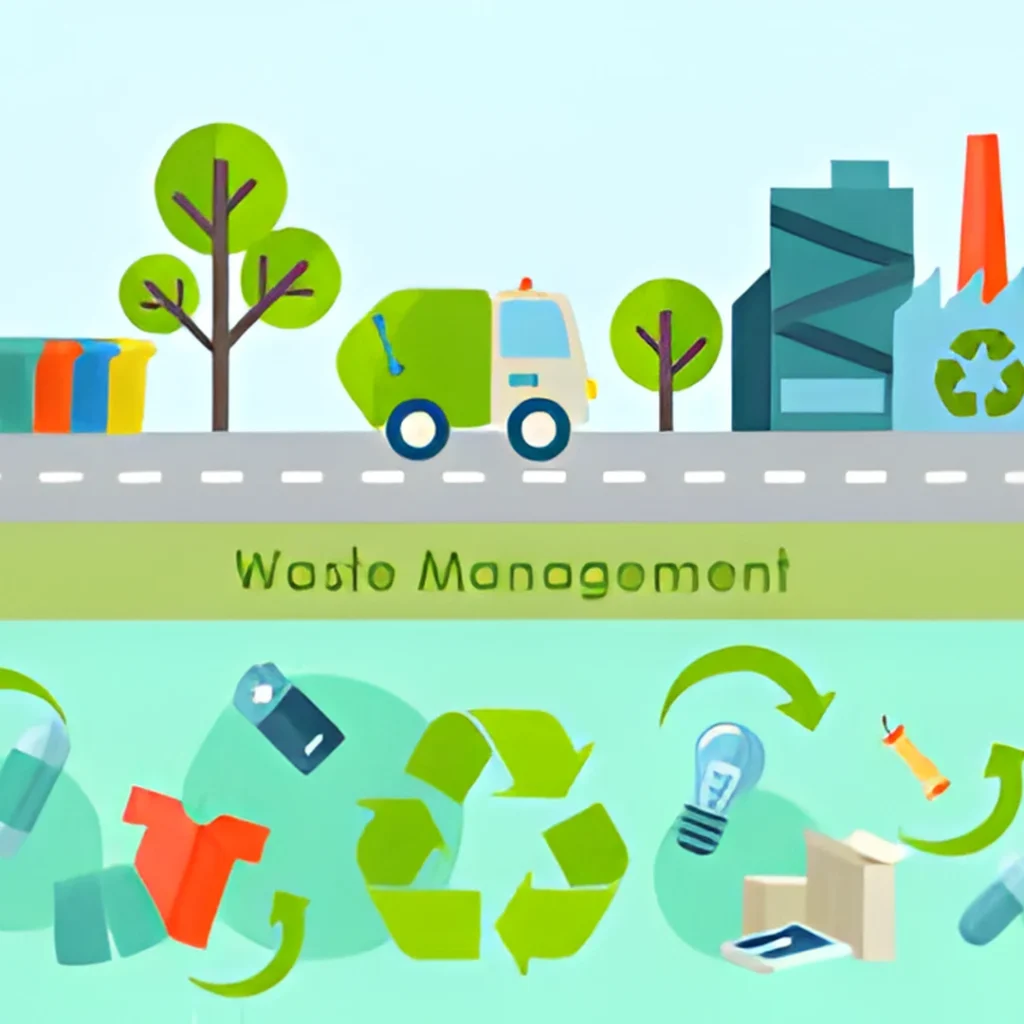In modern agriculture, the choice between compost manure and chemical fertilizers is more critical than ever. As the global population grows, so does the demand for higher crop yields, efficient farming practices, and sustainable soil management. Farmers today must balance productivity with environmental responsibility — and that begins with understanding what goes into the soil.
Both compost manure and chemical fertilizers are designed to enrich soil and support plant growth. Let’s explore these differences between Compost manure and Chemical Fertilizers in detail and understand why more farmers, industries, and municipalities are turning to organic composting.
What is Compost Manure?
Compost manure is a type of organic fertilizer made from the natural decomposition of biodegradable materials such as vegetable peels, garden waste, crop residues, and animal manure. When these materials decompose under controlled conditions, they turn into a nutrient-rich, dark, earthy substance known as compost.
Compost manure is completely natural, containing essential nutrients such as nitrogen, phosphorus, potassium, calcium, and magnesium in balanced forms. More importantly, it enhances soil fertility by improving the soil’s microbial life, which is vital for nutrient cycling and plant health.
What are Chemical Fertilizers?
Chemical fertilizers, also known as synthetic fertilizers, are industrially manufactured substances containing concentrated nutrients for plants. They are often available in granular, liquid, or powdered form and contain specific chemical compounds such as urea (for nitrogen), superphosphate (for phosphorus), and potash (for potassium).
These fertilizers are designed to provide quick and measurable results, helping crops grow faster and yield more. However, their long-term impact on soil health and the environment is increasingly becoming a concern.
Composition and Working Mechanism
Compost Manure
- Derived from decomposed organic matter.
- Contains natural humus that improves soil structure and water retention.
- Nutrients are released slowly and steadily, ensuring long-term soil fertility.
- Encourages beneficial microorganisms that make nutrients more available to plants.
Chemical Fertilizers
- Manufactured using inorganic compounds.
- Delivers nutrients in instant, soluble forms for rapid absorption by plants.
- Provides immediate growth but doesn’t improve the physical structure of soil.
- Repeated use can harm soil biodiversity and cause salinity problems.
Environmental Impact
One of the biggest differences between compost manure and chemical fertilizers lies in their environmental impact.
Compost manure contributes to the circular economy — waste materials that would otherwise end up in landfills are converted into useful fertilizer. This process not only reduces waste but also cuts down greenhouse gas emissions. Composting prevents methane formation from decomposing organic waste, which is a major contributor to climate change.
On the other hand, chemical fertilizers are associated with several ecological challenges:
- Water Pollution: Runoff from fertilized fields contaminates water bodies, causing eutrophication.
- Soil Acidification: Prolonged chemical use disturbs soil pH balance.
- Loss of Soil Microbes: Reduces natural biodiversity, making soil lifeless over time.
By using Kumar Engineering’s food waste composting systems, individuals, institutions, and farms can significantly reduce their carbon footprint and contribute to cleaner, greener communities.
Benefits of Compost Manure
- Improves Soil Structure: Compost manure enhances the soil’s texture, aeration, and water-holding capacity. It creates a favorable environment for root development and microbial activity.
- Increases Microbial Diversity: The microorganisms present in compost play a vital role in breaking down organic matter and making nutrients available to plants.
- Reduces Dependence on Chemicals: Regular use of compost decreases the need for chemical fertilizers and pesticides, promoting a more sustainable farming system.
- Eco-Friendly and Cost-Effective: Since compost is made from organic waste, it’s an inexpensive and renewable alternative to synthetic fertilizers.
- Long-Term Soil Fertility: Compost manure enriches the soil over time, maintaining its health and productivity for future generations.
Drawbacks of Chemical Fertilizers
While chemical fertilizers offer rapid plant growth, they come with several downsides:
- Soil Depletion: Overuse of synthetic fertilizers strips the soil of organic matter, making it hard and compact.
- Environmental Pollution: Nitrogen and phosphorus runoff from chemical fertilizers lead to water contamination and algae blooms.
- Health Risks: Excessive fertilizer use can leave harmful residues on crops, affecting food safety.
- Reduced Microbial Activity: Chemicals disrupt soil organisms responsible for nutrient recycling.
- High Energy Production Cost: Manufacturing synthetic fertilizers consumes large amounts of non-renewable energy resources
Future with Composting Technology
The world is moving toward sustainable and circular practices, where waste is viewed as a resource rather than a problem. This is where Kumar Engineering plays a vital role as a leading food waste comp. The company designs and manufactures high-performance composting machines that turn organic waste into valuable manure within hours or days — depending on the model.
Why Choose Kumar Engineering?
- Advanced Composting Technology: Efficient decomposition with minimal odor and energy use.
- Durable Construction: Machines built from robust materials for long-lasting performance.
- User-Friendly Operation: Easy to use, maintain, and install in residential, industrial, or municipal setups.
- Eco-Sustainability: Reduces landfill waste and promotes organic agriculture.
Whether for housing complexes, restaurants, hotels, farms, or municipal corporations, our machines are a perfect fit for transforming food waste into nutrient-rich compost that supports healthy farming and environmental conservation.
Conclusion:
The difference between compost manure and chemical fertilizers goes far beyond their composition — it’s about choosing the future of farming. Compost manure supports sustainable agriculture, improves soil health, and reduces environmental harm, while chemical fertilizers provide short-term results but often at the cost of long-term ecological balance.
With Kumar Engineering, you can take your composting journey on a sustainable path. With advanced technology and robust materials, we’re known for providing the best waste management machines and helping farmers, businesses, and communities take meaningful steps towards a sustainable world where food production and environmental protection go hand in hand.

